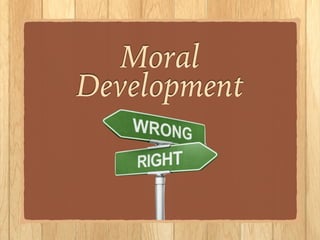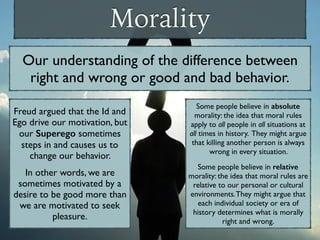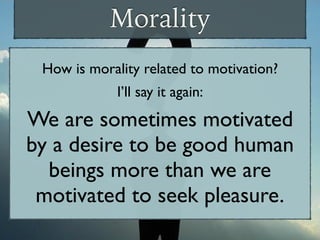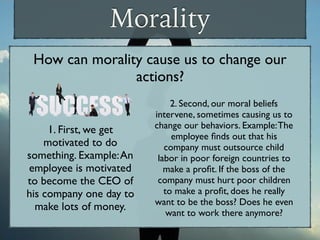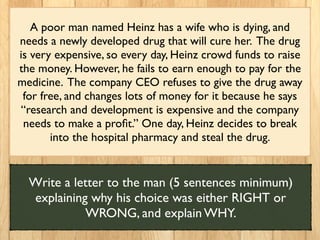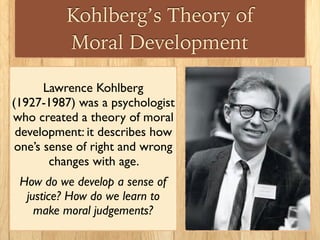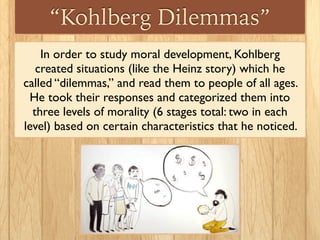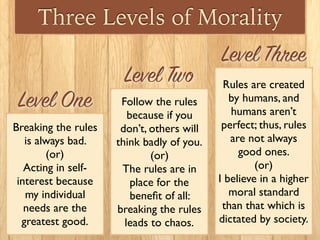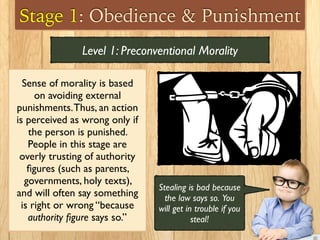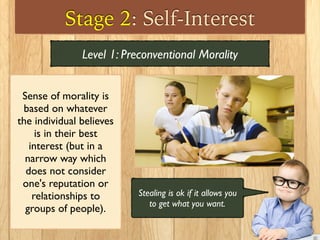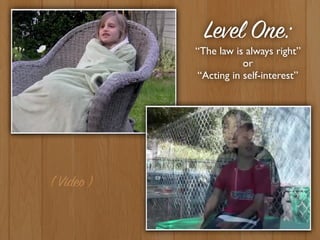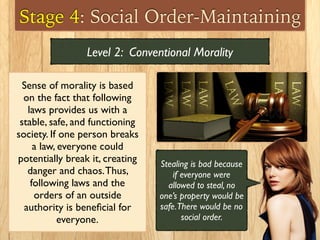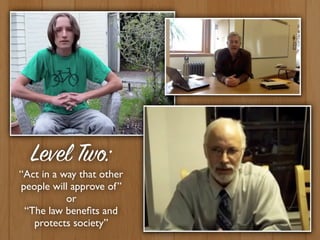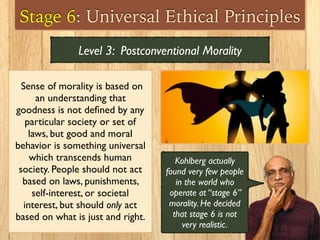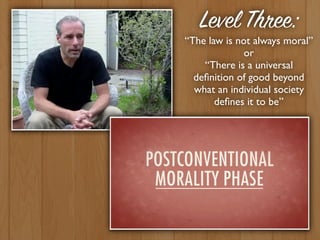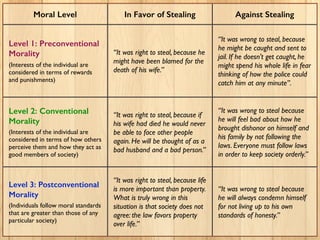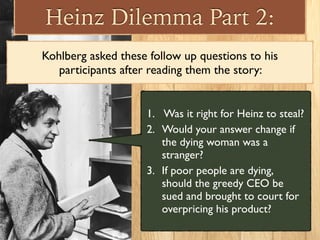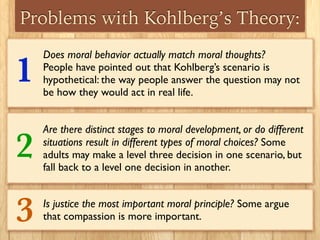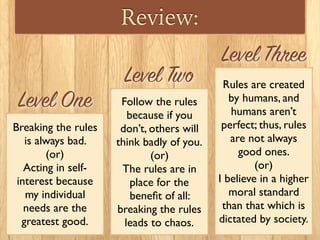The document summarizes Lawrence Kohlberg's theory of moral development. It explains that Kohlberg believed morality develops through 3 levels (pre-conventional, conventional, post-conventional) with 2 stages in each level. At each stage, one's sense of morality and view of rules changes. Kohlberg studied moral reasoning through "dilemma stories" like one about a man stealing medicine to save his wife. His theory aims to explain how individuals develop a sense of justice and make moral judgments over time. However, some criticisms question if moral thought truly matches behavior and whether development is always linear through distinct stages.
